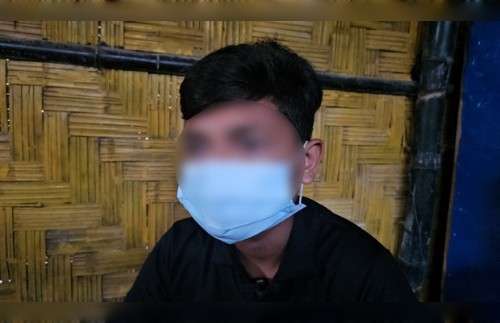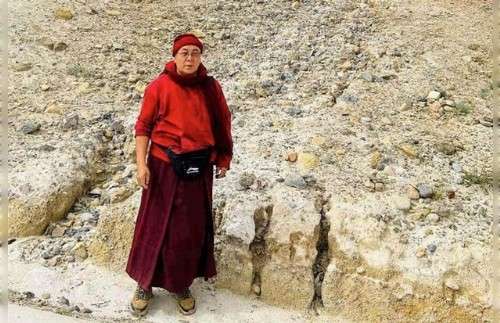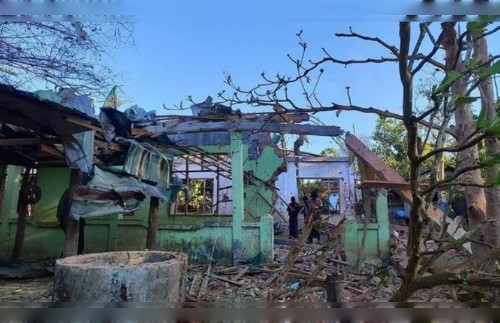The Chinese government uses a variety of techniques to repress Uyghurs who live abroad.
By Roseanne Gerin

China’s targeting of ethnic Uyghurs beyond its borders to silence dissent has been steadily rising for decades, with at least 28 countries complicit in China’s persecution of Uyghurs, according to a new report on the transnational repression of the largely Muslim minority group.
The report by the Uyghur Human Rights Project (UHRP) and Oxus Society for Central Asian Affairs documents China’s transnational repression of Uyghurs with public sources, including government documents, human rights reports, and reports by credible news agencies to establish a detailed analysis of the expanding scale and scope of China’s global repression.
China uses a variety of techniques to repress Uyghurs who live abroad, including espionage, cyberattacks, threatening phone calls for Chinese government officials, physical attacks, rendition, the report says. Some have reported being threatened after speaking publicly about human rights in China’s Xinjiang Uyghur Autonomous Region (XUAR). Others have received demands that they spy on their diaspora communities on behalf of the Chinese government.
The report also says that the transnational repression is part of a greater trend of global authoritarianism that threatens to erode democratic norms worldwide, and that stopping China’s from perpetuating it is not only a moral imperative but also crucial to maintaining state sovereignty and the integrity of international organizations like Interpol and the U.N. High Commissioner for Refugees.
The new report comes amid efforts by foreign governments to take measures against China and Chinese entities involved in the suppression of Uyghurs in the XUAR in light of various reports of severe rights abuses against the minority and members of other Turkic groups.
The dataset in the 62-page report titled “No Space Left to Run: China’s Transnational Repression of Uyghurs,” included 1,546 cases of detention and deportation of Uyghurs from 28 countries outside China from 1997 until March 2021. It notes 647 such cases in the Middle East and North Africa and 665 cases in South Asia.
Of the total number of cases, there were 1,151 incidents of Uyghurs being detained in their host country and 395 cases of Uyghurs being deported, extradited, or rendered back to China.
The report argues that China’s transnational repression of Uyghurs consistently increased over time, rising dramatically with the imposition of mass surveillance systems in the XUAR from 2017 onwards, showing a correlation between repression at home and abroad.
“Although China’s terrorizing of the Uyghur diaspora spans decades, it has escalated dramatically since 2017, as policy in the Uyghur region grew increasingly repressive,” said Bradley Jardine, research director at the Oxus Society for Central Asian Affairs, in a statement.
“The data show that far from a territorially bounded campaign of state violence, Xinjiang’s technologically advanced surveillance state has become a truly global problem, spilling across international boundaries and undermining human rights wherever it goes,” he said.
‘The tip of the iceberg’
The report details three stages of transnational repression with the first stage beginning in 1997, when the first cases of rendition of Uyghurs to China were recorded in Pakistan, and lasting a decade during which nearly 90 Uyghurs from nine countries, mostly in South and Central Asia, were detained or sent to China.
During the second phase from 2008 to 2013, roughly 130 Uyghurs from 15 countries were repressed, while during the third phase from 2014 to March 2021, nearly 1,330 individuals were detained or rendered from 20 countries.
Since 2017, 682 Uyghurs have been detained in Egypt, Indonesia, Kazakhstan, Kyrgyzstan, Pakistan, Qatar, Russia, Saudi Arabia, Syria, Tajikistan, Thailand, Turkey, the UAE, and Uzbekistan, according to the report.
In July of that year, Egyptian authorities rounding up and detaining more than 200 Uyghurs, including students, in Uyghur restaurants, the report said. In many of the cases the report identified, their relatives in the XUAR had been forced to place calls to the students abroad, demanding their return to China.
Additionally, China puts pressure on countries, such as Pakistan, Kyrgyzstan, Cambodia, and Myanmar, to trade human rights for economic opportunities, by taking advantage of their indebtedness under China’s Belt and Road Initiative — a U.S. $1 trillion lending and infrastructure program — to get them to crack down on Uyghurs living inside their borders, the report said.
These recorded instances are “just the tip of the iceberg” because unreported cases would increase the figures substantially, it said.
“International organizations and host governments, particularly those with close political and economic ties to the PRC [People’s Republic of China], can often be complicit in China’s use of transnational repression against Uyghurs, many of whom have sought refuge abroad,” the report says.
The report recommends that states that host Uyghur diaspora communities take measures to combat China’s transnational repression and protect Uyghurs and other vulnerable populations by refusing to extradite them, strengthening resettlement programs by increasing refugee and emigration quotas, and restricting networks of enablers such as tech companies and diaspora groups and organizations serving as fronts for the Chinese government.
To rein in China’s efforts, the report also recommended the restrictions of the export of surveillance technology that can be used to monitor vulnerable communities and an increase in accountability by increasing the costs of undertaking campaigns of transnational repression.
“The scale of China’s transnational repression is no secret to Uyghurs abroad, who have been targeted for decades,” said UHRP executive director Omer Kanat in a statement.
“Virtually every Uyghur living outside East Turkistan has experienced some form of repression at the hands of the Chinese government, from phone calls from Chinese police and attempts to block international travel, to even more serious dangers such as detention, arrest, or deportation to China,” he said, using the name Uyghurs prefer for their homeland.
Copyright © 1998-2020, RFA. Used with the permission of Radio Free Asia, 2025 M St. NW, Suite 300, Washington DC 20036. https://www.rfa.org


















